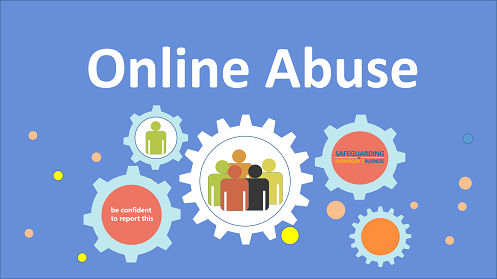Safeguarding News August 2023
I imagine many of us had anticipated an uncomfortably hot August for our summer holidays, based on the soaring temperatures witnessed across Europe. This side of the Jet Stream however, things proved to be a tad cooler and wetter. Here's your chance to catch up on what you might have missed whilst enjoying your summer break, in our look back at last month's newsworthy items impacting the world of safeguarding.
International Safeguarding
This montn we are pleased to announce 3 new course dates for Managing and Leading on International Safeguarding training, aimed at all those who lead on or manage Safeguarding overseas. Click here for more.
Training Schedule
Our latest training schedule is listed below and feel free to share this email with your colleagues and they too can join our newsletter database.
To sign up simply click here.
Services Update
SAFEcic is also accepting many more bookings for its Rapid Review Service, its face to face safeguarding training and audit services. There is also a packed calendar of blended learning events available to book for your organisation. The courses are a very cost effective way of training your staff and volunteers.
SAFEcic Blended Learning Training Calendar
Leading on Child and Adult Safeguarding
Safeguarding Training, Leading on Child and Adult. Online course plus Zoom
Wed 20 September 2023
10:30 - 12:00 GMT
Safeguarding Training, Leading on Child and Adult. Online course plus Zoom
Wed 18 October 2023
10:30 - 12:00 GMT
Safeguarding Training, Leading on Child and Adult. Online course plus Zoom
Wed 22 November 2023
10:30 - 12:00 GMT
Safeguarding Training, Leading on Child and Adult. Online course plus Zoom
Tue 12 December 2023
10:30 - 12:00 GMT
Safeguarding Training, Leading on Child and Adult. Online course plus Zoom
Tue 9 January 2024
10:30 - 12:00 GMT
Safeguarding Training, Leading on Child and Adult. Online course plus Zoom
Thu 8 February 2024
10:30 - 12:00 GMT
Safeguarding Training, Leading on Child and Adult. Online course plus Zoom
Tue 12 March 2024
10:30 - 12:00 GMT
Safeguarding Training, Leading on Child and Adult. Online course plus Zoom
Tue 16 April 2024
10:30 - 12:00 GMT
Safeguarding Training, Leading on Child and Adult. Online course plus Zoom
Wed 8 May 2024
10:30 - 12:00 GMT
Safeguarding Training, Leading on Child and Adult. Online course plus Zoom
Tue 11 June 2024
10:30 - 12:00 GMT
Safeguarding Training, Leading on Child and Adult. Online course plus Zoom
Tue 9 July 2024
10:30 - 12:00 GMT
Standard Child and Adult Safeguarding
Safeguarding Training, Standard Child and Adult. Online Course plus Zoom
Mon 18 September 2023
10:30 - 12:00 GMT
Safeguarding Training, Standard Child and Adult. Online Course plus Zoom
Thu 30 November 2023
10:30 - 12:00 GMT
Safeguarding Training, Standard Child and Adult. Online Course plus Zoom
Tue 13 February 2024
10:30 - 12:00 GMT
Safeguarding Training, Standard Child and Adult. Online Course plus Zoom
Wed 27 March 2024
10:30 - 12:00 GMT
Safeguarding Training, Standard Child and Adult. Online Course plus Zoom
Thu 16 May 2024
10:30 - 12:00 GMT
Safeguarding Training, Standard Child and Adult. Online Course plus Zoom
Tue 2 July 2024
10:30 - 12:00 GMT
Safeguarding: Trustees’ legal responsibilities
Safeguarding: Trustees' legal responsibilities. Online Course plus Zoom
Thu 21 September 2023
10:00 - 11:30 GMT
Safeguarding: Trustees' legal responsibilities. Online Course plus Zoom
Tue 21 November 2023
10:00 - 11:30 GMT
Safeguarding: Trustees' legal responsibilities. Online Course plus Zoom
Wed 31 January 2024
10:00 - 11:30 GMT
Safeguarding: Trustees' legal responsibilities. Online Course plus Zoom
Thu 14 March 2024
10:00 - 11:30 GMT
Safeguarding: Trustees' legal responsibilities. Online Course plus Zoom
Tue 21 May 2024
10:00 - 11:30 GMT
Safeguarding: Trustees' legal responsibilities. Online Course plus Zoom
Wed 10 July 2024
10:00 - 11:30 GMT
Safer Recruitment Training. Online course plus 2 Hr Live Online training
Tue 19 September 2023
10:00 - 12:00 GMT
Safer Recruitment Training. Online course plus 2 Hr Live Online training
Wed 1 November 2023
10:00 - 12:00 GMT
Safer Recruitment Training. Online course plus 2 Hr Live Online training
Thu 7 December 2023
10:00 - 12:00 GMT
Safer Recruitment Training. Online course plus 2 Hr Live Online training
Wed 14 February 2024
10:00 - 12:00 GMT
Safer Recruitment Training. Online course plus 2 Hr Live Online training
Thu 25 April 2024
10:00 - 12:00 GMT
Safer Recruitment Training. Online course plus 2 Hr Live Online training
Tue 4 June 2024
10:00 - 12:00 GMT
Managing and Leading on International Safeguarding
Managing and Leading on International Safeguarding Training. Online course plus Zoom
Thu 2 November 2023
10:00 - 11:30 GMT
Managing and Leading on International Safeguarding Training. Online course plus Zoom
Wed 28 February 2024
10:00 - 11:30 GMT
SAFEcic's free hub resources by setting are available through the SAFEcic.co.uk main menu. Alternately you can bookmark the links below:
Education | Dental | Charities | GP & Primary Medical Services | Fath Groups | Entertainment & Leisure | Working Overseas |
Research, Reports, Government Consultations and Studies

1. Vulnerable people’s drug prescriptions to be reviewed following Ombudsman investigation
Hundreds of people across England with drug and alcohol dependencies who have been prescribed Valium long-term, will have their cases reviewed following an Ombudsman investigation.
The Local Government and Social Care Ombudsman has found that Change Grow Live (CGL), on behalf of Cambridgeshire County Council, has been prescribing benzodiazepines to people long-term, against national guidance. The company also provides drug and alcohol services for 50 other councils.
Benzodiazepines – including diazepam (Valium) - are a class of medicines that can relieve nervousness, tension and other symptoms of anxiety and should usually only be prescribed short-term. CGL’s policy explains people use them for anxiety, insomnia, to enhance opiate effects, to deal with mental health issues, improve confidence and to reduce psychotic symptoms like hearing voices. However, if they are prescribed for too long, they can have significant negative effects including dependence, withdrawal symptoms and drug-seeking behaviour.
People on these medicines should have their prescriptions reviewed regularly, and those reviews should consider the benefits and risks of continuing with the current dose, reducing or stopping it, with a management plan put in place after each review.
However, the Ombudsman’s investigation found CGL were either not reviewing people’s prescriptions regularly enough or not keeping proper records of those reviews.
Across the country, CGL has 343 clients who are on long-term prescriptions. Its medical director has since started a national clinical audit focusing on benzodiazepine prescribing across the country.
The Local Government and Social Care Ombudsman remedies injustice and shares learning from investigations to help improve public, and adult social care, services. In this case CGL and the council have agreed to provide the Ombudsman with a report of the national clinical audit CGL is currently doing.
The council has also agreed to ensure CGL improves record keeping, updates its policy to include recent guidance from NHS England and completes yearly audits of Cambridgeshire CGL clients who are on long-term prescriptions of benzodiazepines.
2. Professional Standards Authority has published the safeguarding consultation report on introducing requirements for Accredited Registers to access criminal records checks.
The PSA Board considered the full findings of the consultation along with an Equality Impact Assessment at its meeting on 19 July 2023. The findings of the consultation and those of the Government’s review of the Disclosure and Barring Regime (the Bailey Review) both raise issues which are relevant to the registration of all healthcare professionals. The Government’s response to the Bailey Review recommendations will be a key factor in future decisions on criminal records checks.
There are inconsistencies in terms of eligibility and access to criminal records checks for both Accredited Registers and the statutory regulators. From September 2023, the focus will be on safeguarding to consider the wider regulatory landscape to gain a better understanding of the inherent risks, with a focus on arrangements for self-employed registrants.
The Professional Standards Authority for Health and Social Care oversees 10 statutory bodies that regulate health and social care professionals in the UK. They assess performance and report to Parliament. Conduct audits and investigations and can appeal fitness to practisc cases to the courts any sanctions are insufficient to protect the public and it is in the public interest. They also set standards for organisations holding voluntary registers for health and social care occupations and accredit those that meet them.
They engage with relevant bodies to work towards a risk-based, consistent approach. These include the UK Government and the agencies overseeing criminal records checks across the UK (the DBS, Disclosure Scotland and AccessNI).
Regulatory Bodies

Inspectors praise strong partnership helping to keep children safe
Inspectors from Ofsted, the Care Quality Commission (CQC) and His Majesty’s Inspectorate of Constabulary and Fire & Rescue Services (HMICFRS) conducted a Joint Targeted Area Inspection of the Gloucestershire County Council, police and NHS from 12 to 16 June 2023. It considered the county’s response to the identification of initial need and risk (often referred to as the ‘front door’).
Their report praises the strength of Gloucestershire’s strategic partnership between the county council, NHS and police, which is testament to the collective commitment of all partners to keeping children and young people in the county safe. It notes this mature relationship is supported by effective governance in the Gloucestershire Safeguarding Children’s Partnership (GSCP).
Inspectors found that most children living in Gloucestershire who are identified to be in need of help and protection receive a swift and appropriate multi-agency response. They highlighted a daily multi-agency vulnerability meeting held in the Multi-Agency Safeguarding Hub (MASH), or ‘front door,’ as a key strength. It promotes effective partnership working where information on the current impact of risks to children is shared and next steps are identified and considered, including who is best to work with children and their families.
The report found that when children’s needs warrant further children’s social care intervention, assessments are detailed and thorough with children seen promptly, including the same day if required. Children are visited at home and when appropriate, in school. Inspectors said children’s plans lead to children receiving the right help and intervention.
Senior leaders were found to have appropriate oversight and knowledge of the effectiveness of multi-agency safeguarding arrangements and inspectors noted their commitment to a continuous learning environment, which they said results in proactive intervention to improve services for children.
The strong partnership between schools and the police was praised in the report. Gloucestershire Constabulary provide training and attend assemblies to talk to children about keeping safe in areas such as online safety and knife crime. Inspectors found this is valued highly by schools who say it is effective in de-escalating issues that may otherwise increase risks to children.
The report also highlights a multi-agency child exploitation meeting which allows partners to effectively share intelligence and information about local hot spots, perpetrators, and persons of concern enabling professionals to identify emerging themes and develop targeted disruption activity. Dedicated teams in the police and the youth support service focus on missing children and the inspection found professionals know these children well.
Steps are being taken to make progress in the areas that inspectors found needed improvement including the efficiency of partner recording systems, the consistent use of police vulnerability screening tools and making sure children’s voices are used to inform decisions across all partner agencies.
Charity Commission
1. Watchdog reports on investigation into Watch Tower Bible and Tract Society of Britain
The inquiry opened in May 2014 to investigate the charity’s handling and oversight of safeguarding matters, including child protection advice provided to individual Jehovah’s Witness (JW) congregations.
This followed significant interaction between the Commission and the charity since October 2007, concerning the way in which safeguarding incidents or failures were handled within JW organisations and, specifically, the adequacy of the guidance that the charity provided to various JW congregations. JW organisations reported to the Independent Inquiry into Child Sexual Abuse (‘IICSA’) that a total of 67 allegations of child abuse were made between 2009 and 2019 against 67 individuals involved in JW congregations, whether as Elders, ministerial servants or otherwise.
During the course of the Commission’s interaction with the charity from 2007 onwards, including during the period of the inquiry, JW congregations have revised and updated their safeguarding policies on several occasions, and the Commission remains engaged with JW congregations on safeguarding matters through its ongoing interaction with the Kingdom Hall Trust.
One key issue which emerged during the inquiry was the extent to which the charity itself remained responsible for ensuring children and vulnerable people are safe from harm within JW congregations.
Notwithstanding the charity having had an historic role in interacting with the Commission over JW safeguarding, the Commission’s report concludes that Watch Tower is no longer the body responsible for safeguarding within JW congregations, and therefore the inquiry can be closed. It is the Commission’s view that following the merger of Kingdom Hall congregation charities with the Kingdom Hall Trust in March 2022 (‘KHT’) that KHT is now the body responsible for safeguarding congregation members. The Commission has opened a compliance case to work with KHT’s trustees to ensure that the safeguarding policies, guidance, and procedures of KHT provide a safe environment for beneficiaries within all JW congregations.
The Commission’s report is critical of the charity’s trustees’ conduct during the inquiry, expressing the view that on occasions the trustees were “not as straightforward or transparent as they should have been” in relation to JW child safeguarding responsibilities, and that during certain phases of the investigation, “the trustees’ communications were protracted, with the charity’s responses often failing to provide the information requested or sufficient clarity to satisfy the inquiry, giving rise to further questions.”
The inquiry noted that there was insufficient evidence to conclude that these behaviours were deliberate attempts to obstruct the inquiry.
The report also details those legal challenges brought by the charity, which sought to challenge some of the regulator’s decisions and orders, which partly explain the significant delays to the inquiry.
. The Boshier Grant Scheme
In partnership with the National Autistic Society, Thea and Peter Boshier have established a new grant scheme, The Boshier Grant Scheme.
Grants of up to £25,000 will be awarded to registered charities throughout the UK, who share the National Autistic Society’s vision to create a society that works for autistic people. Grants will only be given to organisations and projects which meet the eligibility criteria.
The fund will open for applications from 31 July 2023 to 15 September 2023. Please read and download the application guidance for more information on how to apply, including submitting an expression of interest prior to application.
The Boshier Grant Scheme is open to charitable organisations of any size in the UK. Applicants must be registered with the Charity Commission and have a charity number and bank account.
The scheme will only award grants to projects which benefit the lives of autistic people in the UK. We will not consider applications from outside the UK.
Resources

1. Greater support and better outcomes for victims of sexual violence
Rape and Sexual Abuse Support Fund (RASASF), initially launched in 2011, is part of the government’s commitment to quadruple funding for victim support services by 2025 compared to 2010. Innovative projects set to be funded for the next 2 years as a direct result of today’s cash boost include:
- Oxfordshire Sexual Abuse and Rape Crisis Centre, who offer support for adults and young people, including parent and carer sessions and family therapy – keeping victims connected to their loved ones
- Trafford Rape Crisis, supporting women in Greater Manchester include offering a new holistic service which is specifically focused on supporting black and minoritised women
- We Are Survivors, who provide male-specific sexual assault and rape support
The news comes as new figures show the government has achieved its third and final ambition in its landmark End-to-End Rape Review 18 months ahead of target - restoring Crown Prosecution Service charges to 2016 levels.
The funding comes as CPS data published today shows charges for adult rape-flagged cases increased to 567 in the latest quarter, (January – March 2023), 5% over the 2016 quarterly average and Rape Review ambition of 538. This means the Government has already met all 3 key ambitions in the Rape Review ahead of schedule – restoring the number of police referrals, CPS charges and cases reaching court to 2016 levels.
In July all 43 police forces across England and Wales, and all rape prosecutors across the country, began implementing a new approach to dealing with rape and other serious sexual offences, ensuring forces conduct thorough investigations which put the focus on the suspect and centre the rights and needs of victims.
This new approach, developed through Operation Soteria and previously piloted in 19 police forces and 9 Crown Prosecution Service Areas, uses academic evidence and insight to enable forces and prosecutors to transform their response to rape and serious sexual offences.
The Rape Review progress report published last month shows improvements have been made in response to rape across every stage of the criminal justice system and, crucially, data suggests more and more victims are reporting these abhorrent crimes to the police – demonstrating an increase in victim confidence.
A £1.2 million training programme has also been launched for Independent Sexual Violence and Domestic Abuse Advisors who provide emotional and practical support to victims. The government is funding 1,000 of these posts and the training to make sure these vulnerable victims get better help and stay engaged with the criminal justice system.
2. Gambling Commission will direct £19.2 million of fines towards socially responsible purposes as part of a regulatory settlement
Three gambling businesses owned by William Hill Group will pay a total of £19.2 million for social responsibility and anti-money laundering failures. WHG (International) Limited, which runs williamhill.com, will pay £12.5 million, Mr Green Limited, which runs mrgreen.com, will pay £3.7 million and William Hill Organization Limited, which operates 1,344 gambling premises across Britain, will pay £3 million. Today’s action comes just a week after the Commission fined two operators owned by Kindred Group plc a combined £7.2 million and is the largest enforcement case taken on by the regulator. The previous largest was £17 million action taken against Entain in August last year. Since the start of 2022 the Commission has concluded 26 enforcement cases with operators paying over £76 million because of regulatory failures.
All £19.2 million will be directed towards socially responsible purposes as part of a regulatory settlement.
Additional licence conditions will also be added to ensure a business board member oversees an improvement plan, and that it undergoes a third-party audit to assess that it is effectively implementing its AML and safer gambling policies, procedures and controls.
3. Government suicide prevention fund for charity sector to be boosted
Tens of thousands of people experiencing suicidal thoughts or approaching a mental health crisis will receive vital support, as the government relaunches a £10 million fund so charities can work with the NHS to provide life-saving suicide prevention services. Charities in communities across England can now apply for the latest round of funding from the Suicide Prevention Grant Fund which will ensure as many people as possible can access the support and prevention services they need, when they need it. Funding will also help prevent people reaching crisis point and reduce future demand for these services across both the charity sector and the NHS. There is Suicide Prevention Grant Fund 2023 to 2025, guidance for those charities who would like to apply.
Online Safety

1. Filtering and monitoring – Questions for governors, proprietors and trustees
In its simplest terms, filtering systems are mechanisms that manage access to online content. Monitoring is your school or college ability to safeguard users by understanding, in a timely manner, how your systems are being used, or misused. These questions are for Governors, proprietors and trustees to seek assurance that filtering and monitoring standards are being met around the following areas:
- Schools and Colleges should identify and assign a number of roles and responsibilities including a responsible governor.
- Schools and Colleges should review, at least annually, that their filtering and monitoring provision is adequate.
- Schools and Colleges should check that their filtering and monitoring systems are working and effective.
To get a breakdown of the questions and to understand why they are being asked, read Filtering and Monitoring .
2. Grooming cases at record high amid online safety laws delay
Children's charity the NPSCC says 34,000 online grooming crimes had been recorded by UK police forces since it first called for tougher laws in 2017. The proposed new rules state that tech companies should be able to access the content of private messages if there is a child safety concern. Many popular apps offer an encrypted messaging service, which means that only the sender and recipient can view the content. The tech firms themselves cannot see it. However, these privacy functions are available to everybody, and the platforms say they offer extra protection to victims of domestic abuse, journalists and political activists, among others. They also say that if they build in a backdoor, it will make their services less secure for all.
Citing data from 42 UK police forces, the NSPCC said that 6,350 offences related to sexual communication with a child were recorded last year - a record high. The new research shows that over the last six years 5,500 offences took place against primary school-age children. This means that under-12s made up a quarter of the over 21,000 known victims over that period. However, ministers have recently had to defend the Online Safety Bill against a backlash from some tech companies, who argue the law will undermine the use of encryption to keep online communications private. Some platforms are threatening to leave the UK altogether rather than comply with the new rules.
3. IWF partners with SS8 to help block access to child sexual abuse imagery
SS8 Networks, a leader in lawful and location intelligence and monitoring centre platforms, is partnering with the Internet Watch Foundation (IWF) to help remove child sexual abuse material from the internet. As a new Member, SS8 will be allowed to use the IWF’s Hash List in software that is used by law enforcement agencies around the world.
The IWF’s Hash List contains a unique and enriched catalogue of codes or hashes of confirmed child sexual abuse imagery. These ‘digital fingerprints’ are updated daily and manually verified by the IWF’s expert analysts who then share the Hash List with companies, law enforcement agencies and governments who work to block and remove the criminal content.
SS8 will include the Hash List in its Intellego XT product. Intellego XT is an advanced monitoring and analytics platform used by law enforcement agencies to ingest, analyse, and visualise large amounts of data associated with a criminal investigation. During their investigations, agents may discover the presence of child sexual abuse material on a criminal’s device. With the included Hash List, the investigators will be notified of the image’s assigned hash and can take action to have the image removed from its hosting site.Find out more about becoming a Member and the services the IWF can provide here IWF Services
The public is given this advice when making a report:
- Do report images and videos of child sexual abuse to the IWF to be removed. Reports to the IWF are anonymous.
- Do provide the exact URL where child sexual abuse images are located.
- Don’t report other harmful content – you can find details of other agencies to report to on the IWF’s website.
- Do report to the police if you are concerned about a child’s welfare,
- Do report only once for each web address – or URL. Repeat reporting of the same URL isn’t needed and wastes analysts’ time.
Online Abuse

1. 12 years for teacher who paid £65,000 for the abuse of children in India
A former deputy head teacher of a primary school has been sentenced to 12 years in prison for paying and instructing teenagers in India to abuse younger children.
Matthew Smith, 35, from East Dulwich, was arrested by the National Crime Agency in November 2022, after investigators identified that he was sharing abuse material on the dark web.
Smith was online at the time of his arrest, speaking to a teenage boy living in India and asking him to send sexual images of a younger child, in return for money. He also had dark web sites and forums open on his computer which were dedicated to child sexual abuse.NCA investigators interrogated chat logs and financial transactions and were able to establish that Smith had paid that same teenager, and another also based in India, a total of £65,398 to abuse children over a five-year period.
The chat logs showed that Smith would instruct the young men to perform sexual acts on boys and would send them images and videos as examples of ones he would like to receive in return. He also gave one of them advice on how befriend children and build their trust with a view to abusing them.Smith was living in Nepal and working at a school for the majority of this time. Prior to this, he spent various periods working in orphanages and NGOs across India between 2007-2014. Investigators found evidence of potential offending by Smith against children while he was working in India. The NCA shared information with the Indian authorities and continues to work with them in order to identify and safeguard victims.
He moved back to the UK in July 2022 and began working at a primary school in London in September, where he was a deputy head teacher and head of pastoral care. That summer, Smith posted an online advert looking to secure a flat share, in which he said he was a primary school teacher and could assist with childcare. He was arrested before he could be taken up on his offer.
There is no evidence to suggest he committed offences against children based in Nepal or the UK. Officers recovered over 120,000 indecent images of children (IIOC) which Smith had saved on a laptop, SD card and on his phone. Smith pleaded guilty to 22 counts, including encouraging the rape of a child under 13, causing a child under 13 to engage in sexual activity, and arranging the sexual abuse of a child.
He was sentenced 9 August at Southwark Crown Court to 12 years in prison. He is also subject to an indefinite sexual harm prevention order and has been placed on the sex offenders register for life.
2. Man jailed after posting child abuse on Twitter
A Nottinghamshire man who secretly captured child abuse material and shared indecent images on social media has been jailed. Lee Bowdler, 52, from Bilsthorpe, was identified by National Crime Agency investigators after he posted some indecent images of children (IIOC) on Twitter using an online moniker. The NCA linked this to an email address that he used and connected it to his IP address. Bowdler was arrested by NCA officers at his place of work, in Colwick, in May last year. Eight of his devices were seized, which forensic examination showed contained 271 images in categories A-C (A being the most severe). Officers also recovered a secret recording of two children taking a bath, which Bowdler had filmed using a hidden camera. He was arrested for voyeurism at a later date in relation to this.
Bowdler admitted three counts of making IIOC, one count of distributing IIOC and one count of voyeurism at Mansfield Magistrates’ Court on 7 February this year. He was sentenced at Nottingham Crown Court on15 August to 12 months in prison and handed a 10-year sexual harm prevention order.
Worthy of Note

1. Fourteen migrants, including 4 children, were found hidden behind cardboard boxes in a van.
A British man who tried to smuggle migrant children as young as 1 into the UK by hiding them behind boxes in his van has been jailed for 4 years. Trevor Saker, 44, was sentenced at Canterbury Crown Court on July 2, after being found guilty of attempting to facilitate the entry of 14 migrants into the UK. Saker had claimed to Border Force officers that he was travelling back to the UK from France after collecting shoes for his wife’s new business. He was caught following an investigation by the Home Office’s Criminal and Financial Investigations (CFI) Unit. The defendant, who now resides in Cadiz, Spain, was driving a Vauxhall Vivaro rental van when he was stopped by Border Force officers in the UK Control Zone in Coquelles, France in July 2018. Officers found 14 illegal migrants in the back of the van, hidden behind cardboard boxes. The migrants were identified as being Iraqi and Albanian nationals. Among the group were 4 children aged 1 to 6 years old.
The defendant was found guilty of assisting unlawful immigration following a thorough investigation and subsequent trial.
2. Sexual harassment in healthcare must stop – new GMC standards for doctors makes it clear
Zero tolerance of sexual harassment, including clear definitions of what constitutes it and an expectation that doctors who see such behaviour will act, will be included for the first time in new professional standards issued by the General Medical Council (GMC).
The regulator has today published an update of Good medical practice, which details the principles, values and standards expected of doctors working in the UK. It is the first major update to the guidance in ten years. Sexual harassment of colleagues is covered explicitly for the first time. The guidance says doctors ‘must not act in a sexual way towards colleagues with the effect or purpose of causing offence, embarrassment, humiliation or distress’. The standards make clear this includes verbal or written comments and displaying or sharing images, as well as physical contact.
This adds to existing guidance that doctors must not act in a sexual way towards patients or use their professional position to ‘pursue a sexual or improper emotional relationship’. For the first time the guidance also sets out what doctors should do if they witness bullying or harassment.
Reasons to Remain Vigilant in All Aspects of Safeguarding
1. Step-father who murdered ten month old baby jailed for life
The step-father of a ten-month-old baby has been jailed for life for his murder.Jacob Crouch died on 30 December 2020 after months of cruelty at the hands of his step-father Craig Crouch at their home in Linton, near Swadlincote. Jacob’s mother, Gemma Barton, was cleared by the jury of his murder, however, they did find her guilty of causing or allowing his death.
The trial at Derby Crown Court heard how Jacob suffered up to 41 broken ribs – caused by being squeezed with serious force on five sperate occasions over many months – with some of the fractures shown to have healed and then been re-broken.
The fatal wound, which experts described as being a kick, stamp or punch with the same force as a road traffic collision, ruptured his bowel causing an infection called peritonitis.
Tragically, the court heard, that had the couple sought immediate medical help for Jacob he would have likely survived.
Both Crouch and Barton denied committing the assaults or knowing how the injuries were caused – but at court the prosecution evidence was overwhelming that both had a part to play in Jacob’s death.
On 4 August Crouch, 39, was jailed for life for Jacob’s murder and must serve a minimum of 28 years in prison.
Gemma Barton, 33, was jailed for 10 years for her part in allowing Jacob to die.
2. Comedian downloaded indecent images of children
A comedian from Derbyshire has been sentenced for making and possessing thousands of child sexual abuse images. Tom Binns, 53, was identified by National Crime Agency investigators after the indecent images of children (IIOC) were uploaded to a Google account in his name. Binns was arrested by NCA officers at his Chesterfield home in November 2020. Three of his devices were seized, which forensic examination showed contained more than 9,000 images in categories A-C (A being the most severe).
Binns had asked a family friend to sell several other devices on eBay, three of which contained more than 25,000 additional abuse images. When interviewed, Binns denied viewing IIOC online but said he had watched adult pornography. He claimed these files must have contained the IIOC without his knowledge. However, examination of his devices showed they had been downloaded across a nine-month period in 2020.He later admitted five counts of making indecent images of children, and one count of possessing them, at Derby Crown court on 21 November last year.
3. Lucy Letby found guilty of baby murders
Letby was sentenced on Monday 21st August 2023, and received a whole life order. She has been convicted of murdering newborn babies at the hospital where she worked. Lucy Letby used a variety of methods to secretly attack a total of 13 babies on the neonatal ward at the Countess of Chester hospital between 2015 and 2016.
Seven babies died as a result and today a jury found Letby guilty of their murder. She was also found guilty of seven counts of attempted murder relating to six other babies. During the trial, which began in October last year, Manchester Crown Court heard that doctors at the hospital began to notice a significant rise in the number of babies who were dying or were unexpectedly collapsing. When they were unable to find a medical explanation, police were alerted and an investigation followed. Letby, now aged 33, was first arrested in July 2018 and subsequently charged in November 2020.The prosecution was able to present evidence of Letby using various methods to attack babies, including: the injection of air and insulin into their bloodstream; the infusion of air into their gastrointestinal tract; force feeding an overdose of milk or fluids; impact-type trauma. Her intention was to kill the babies while deceiving her colleagues into believing there was a natural cause.
And Finally
Legal powers given to Lucy Letby inquiry
The inquiry into circumstances around the horrific crimes committed by former neonatal nurse, Lucy Letby, will become statutory, the Health and Social Care Secretary Steve Barclay has announced While statutory inquiries traditionally take longer to conclude than non-statutory inquiries, moving to a statutory footing will mean the inquiry will have legal powers to compel witnesses, including former and current staff of the Countess of Chester Hospital Trust, to give evidence. It will also mean that evidence must be heard in public, unless the inquiry chair decides otherwise. This statutory public inquiry will aim to give the families the answers they need and ensure lessons are learned. The statutory inquiry will investigate the wider circumstances around what happened at the trust, including the handling of concerns and governance. It will also look at what actions were taken by regulators and the wider NHS.
The government will publish the inquiry’s terms of reference - setting out the scope of the work - in due course.
The government has indicated that it will look to appoint a judge to chair the inquiry, and the Health and Social Care Secretary is working with colleagues across government to identify a suitable candidate as soon as possible.




